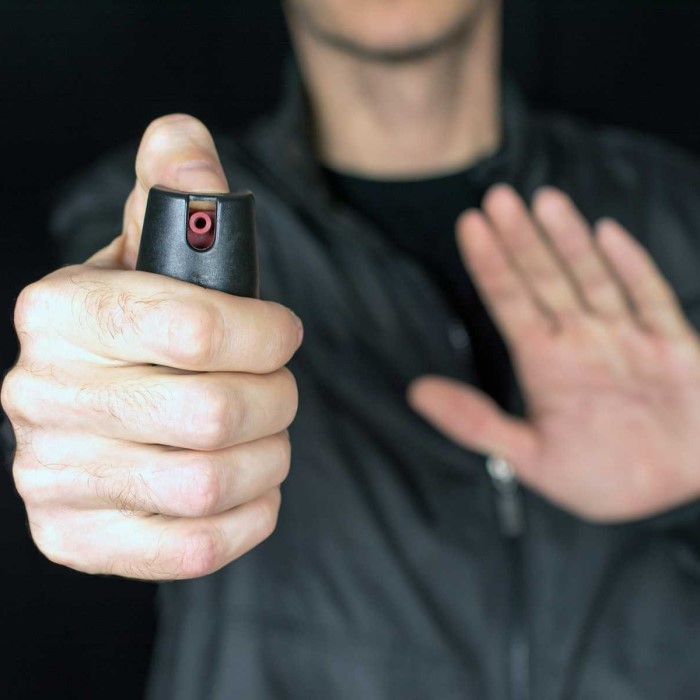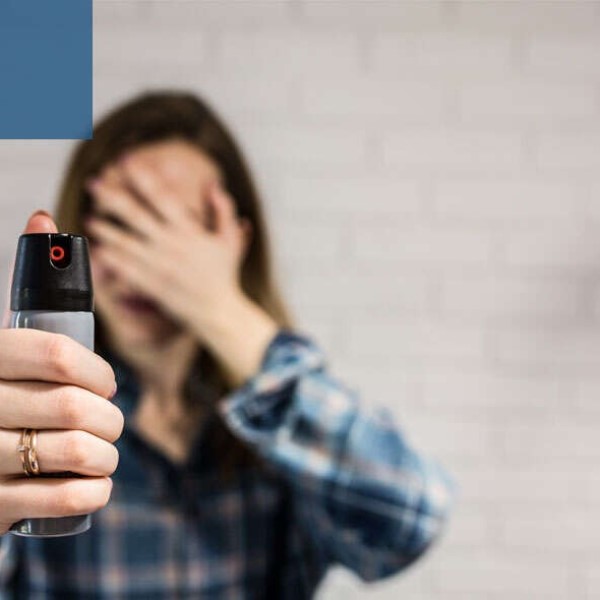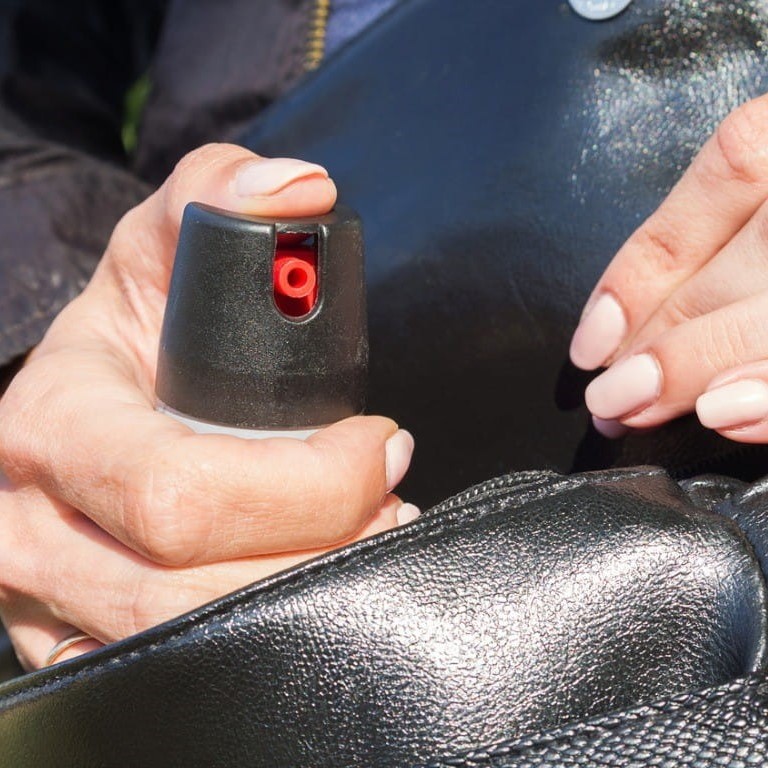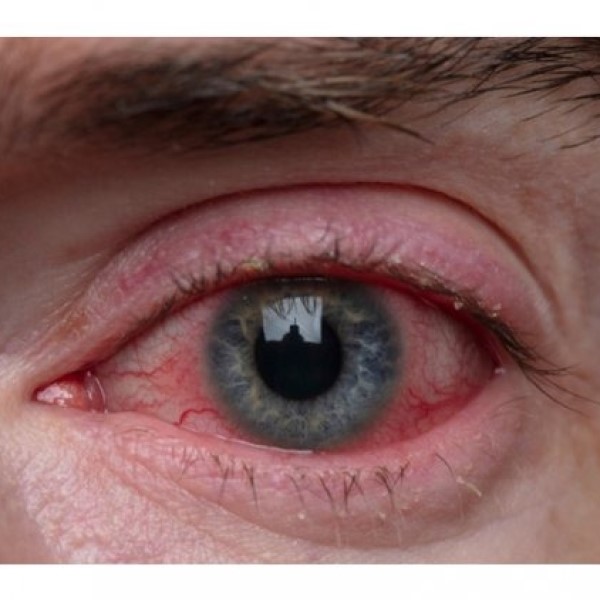Introduction: Understanding the Effects of Pepper Spray
When discussing self-defense tools, pepper spray frequently emerges as a popular option for personal protection. However, many individuals wonder, “Can pepper spray cause permanent damage?” Understanding the effects of pepper spray on the body is crucial, especially for those considering using it in emergency situations. While pepper spray is designed to incapacitate an attacker temporarily, concerns about potential long-term repercussions abound among users and victims alike. In this article, we will explore the nature of pepper spray, its immediate and long-term effects, and recovery processes, in-depth.
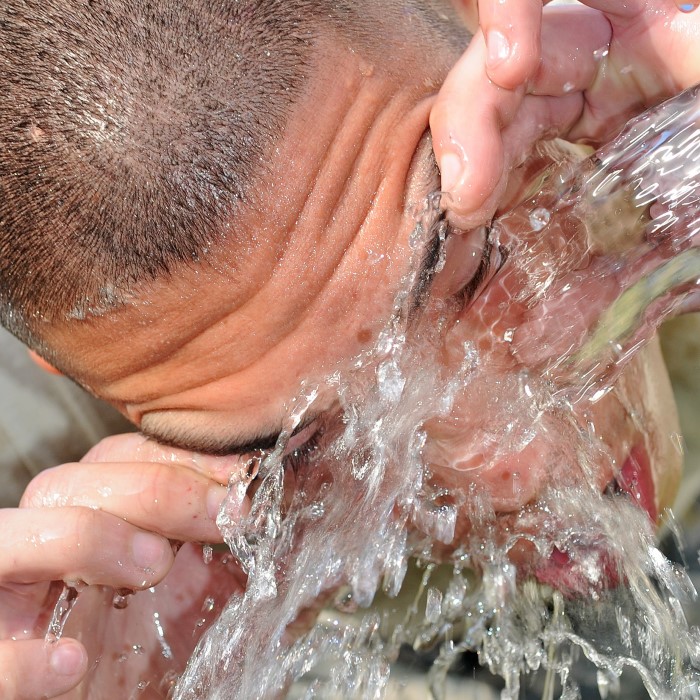
What Is Pepper Spray and How Does It Work?
Pepper spray is a self-defense tool widely used for personal safety. It primarily contains capsaicin, the active ingredient derived from chili peppers, which is what gives it its intense burning sensation.
- Chemical Composition of Pepper Spray: Most pepper sprays consist of capsaicin, a solvent to ensure even distribution of the spray, and a propellant that helps it discharge effectively. Capsaicin is responsible for the acute pain and discomfort experienced when it comes into contact with skin, eyes, and mucous membranes. It is typically available in various concentrations, affecting its potency and effectiveness.
- Mechanism of Action: When sprayed onto an assailant, capsaicin causes severe inflammation and irritation of the eyes, nose, throat, and respiratory system. The immediate effects include tearing, temporary blindness, difficulty breathing, and an intense burning sensation in affected areas. This chemical reaction is intended to provide victims a window of opportunity to escape dangerous situations.
- Legal and Situational Usage: Many individuals choose to carry pepper spray as a legal means of self-defense. It is seen as a non-lethal option that provides security without the intent to cause permanent harm. However, understanding how to use pepper spray properly and the potential consequences is vital for both users and those who may be exposed to it.
Can Pepper Spray Cause Permanent Damage?
Can pepper spray cause permanent damage? While pepper spray is generally regarded as safe for self-defense, there are legitimate concerns about its potential for causing long-term health effects.
- Temporary vs. Permanent Effects: Most users experience temporary effects, including pain, redness, and swelling of the affected areas. However, there are instances where injuries can escalate to more severe conditions, resulting in long-lasting damage.
- Potential Risks of Improper Use: The risk of permanent damage increases significantly when pepper spray is misused or not applied according to guidelines. For example, spraying at too close a range can lead to more concentrated exposure, heightening the likelihood of injury. Additionally, if a person is already suffering from respiratory issues, the effects of pepper spray could become exacerbated with serious consequences.
- Pre-existing Conditions: Individuals with existing health issues, particularly respiratory conditions like asthma, are at greater risk when exposed to pepper spray. The irritation caused by the spray may lead to prolonged complications, which can necessitate medical treatment.
Understanding Long-Term Effects of Pepper Spray
Many individuals are concerned about the potential long-term effects associated with the use of pepper spray. These effects can vary significantly depending on exposure, the health of the individuals involved, and the circumstances of the encounter.
Respiratory Concerns
1. Long-Term Exposure and Respiratory Issues
Long-term exposure to pepper spray can have significant implications for respiratory health.
- Exacerbation of Existing Conditions: Individuals with pre-existing respiratory issues, such as asthma or chronic obstructive pulmonary disease (COPD), may find that their symptoms worsen after exposure to pepper spray. The ingredients in pepper spray act as irritants, causing inflammation in the airways.
- New Respiratory Problems: In addition to worsening existing conditions, pepper spray exposure can trigger new respiratory problems. For instance, individuals who did not previously experience symptoms may develop chronic bronchitis or asthma attacks after being exposed to high concentrations of pepper spray.
- Symptoms to Watch For: Those affected may exhibit chronic coughing, wheezing, or shortness of breath. Persistent symptoms may necessitate medical attention for proper evaluation and treatment.
2. Sensitive Lungs at Higher Risk
Individuals with sensitive lungs or allergies may experience more severe reactions.
- Increased Sensitivity: For people with asthma or other respiratory sensitivities, even brief exposure to pepper spray can result in significant discomfort or difficulty breathing. The inflammatory response may be heightened, leading to pronounced symptoms.
- Environmental Factors: The impact of the environment during exposure can also contribute to respiratory concerns. For example, spraying in a confined or poorly ventilated space increases the concentration of irritants, amplifying the potential for impactful health consequences.
Eye Damage
1. Prolonged Exposure Effects
Prolonged exposure to pepper spray can lead to serious eye issues.
- Temporary Vision Impairment: One of the most immediate effects of pepper spray on the eyes is temporary vision impairment. The intense burning sensation can cause excessive tearing, making it difficult to see clearly. Usually, this condition resolves once the irritants are removed and proper care is taken.
- Potential for Severe Complications: If exposure is not addressed promptly, it may lead to more severe complications. For example, capsaicin can cause corneal abrasions, which are painful scratches on the surface of the eye. Such injuries can lead to further consequences if not treated swiftly and correctly.
2. Risks of Infection and Long-Term Damage
In addition to abrasions, prolonged exposure can elevate the risk of infection and long-term damage.
- Increased Risk of Infection: Damage to the eye can make individuals more susceptible to infections, such as conjunctivitis. Infection can result from the introduction of pathogens due to compromised eye surfaces.
- Long-Term Vision Impairment: In extreme cases, untreated damage from pepper spray could lead to permanent vision impairment. The cornea may not heal properly, resulting in lasting effects on a person’s eyesight. Immediate medical intervention is critical in these cases to minimize long-term damage.
Skin Irritation
1. Sensitivity and Allergic Reactions
Some individuals may experience heightened sensitivity or allergic reactions to ingredients in pepper spray.
- Irritant Contact Dermatitis: Long-term exposure to pepper spray can potentially trigger irritant contact dermatitis. Symptoms may include redness, itching, and swelling. This allergic response can disrupt daily life and lead to discomfort with continued exposure.
- Identifying Sensitivity: Recognizing whether an individual has a sensitivity to pepper spray is essential. Some may not initially react but could develop sensitivity over time with repeated exposure.
2. Chronic Conditions from Long-Term Exposure
Long-term exposure can also lead to more serious skin conditions.
- Development of Eczema: Individuals with prolonged exposure may develop chronic skin conditions, such as eczema. This condition leads to itchy, inflamed skin and can result in significant discomfort.
- Persistent Dermatitis: Persistent dermatitis may also occur, characterized by ongoing irritation with recurring flare-ups. Effectively managing these conditions involves taking proactive measures to avoid further exposure and seeking appropriate dermatological care.
3. Importance of Proper Care and Management
For individuals experiencing skin reactions to pepper spray, proper care and management are paramount.
- Consult a Dermatologist: Consulting a medical professional or dermatologist can help determine appropriate treatment options, such as topical steroids or antihistamines, to alleviate symptoms.
- Preventive Measures: Taking preventive measures, such as using personal protective equipment and avoiding contact with pepper spray, can help reduce the risk of developing long-term skin conditions. Regularly moisturizing and taking care of the skin can also aid in maintaining skin health.
Recovery from Pepper Spray Exposure
Can pepper spray cause permanent damage? Recovering from pepper spray exposure is generally straightforward but may require different approaches depending on the severity of exposure and individual health conditions.
- Immediate First Aid: The first step after exposure to pepper spray is to move to an area with fresh air. This can help alleviate some immediate symptoms. If the spray has come into contact with the eyes, it is essential to rinse them thoroughly with clean water or a saline solution for at least 15-20 minutes. Removing contaminated clothing can also help prevent further irritation.
- Seeking Medical Attention: In cases of severe reactions, it is advisable to seek medical attention. Medical professionals can administer treatments such as oxygen therapy for respiratory distress, or eye irrigation for severe exposure to the eyes. Never hesitate to visit health services if symptoms persist or worsen.
- Time for Recovery: Most individuals will recover from the acute effects of pepper spray within a few hours to several days, depending on the exposure and their health status. Keep track of any symptoms that escalate or do not subside, as these may require further medical evaluation.
FAQ: Understanding the Aftermath of Pepper Spray
What are the long-term effects of pepper spray?
The long-term effects may include respiratory issues, chronic eye problems, and skin irritation. Those with pre-existing medical conditions may experience heightened risks.
Can you recover from pepper spray?
Yes, most individuals recover from pepper spray effects within hours to days. Prompt first aid can help facilitate recovery, but severe reactions may need medical intervention.
Can pepper spray cause serious bodily injury?
While pepper spray is designed for self-defense and generally does not cause serious injury, improper use, and exposure can lead to significant health concerns.
What is the aftermath of pepper spray?
The aftermath typically involves symptoms that include burning sensations, inflammation, and temporary impairment. Ensuring proper treatment and monitoring is essential for a safe recovery.
In conclusion, the question, “Can pepper spray cause permanent damage?” requires a nuanced understanding. While pepper spray is largely safe for intended use, the potential for serious, long-term effects exists under certain circumstances. Awareness of the risks, immediate first aid, and understanding recovery options are paramount for anyone considering using pepper spray, whether for personal security or in a self-defense scenario.
As with any self-defense tool, having comprehensive knowledge of its effects is crucial for informed decision-making. By grasping these concepts, users can wield pepper spray effectively while minimizing the risk of lasting harm. Always prioritize safety, educate yourself on proper techniques, and be prepared to respond effectively in the event of exposure. Adequate preparation will help to ensure that pepper spray remains a suitable option for personal protection without leading to unintended consequences.
